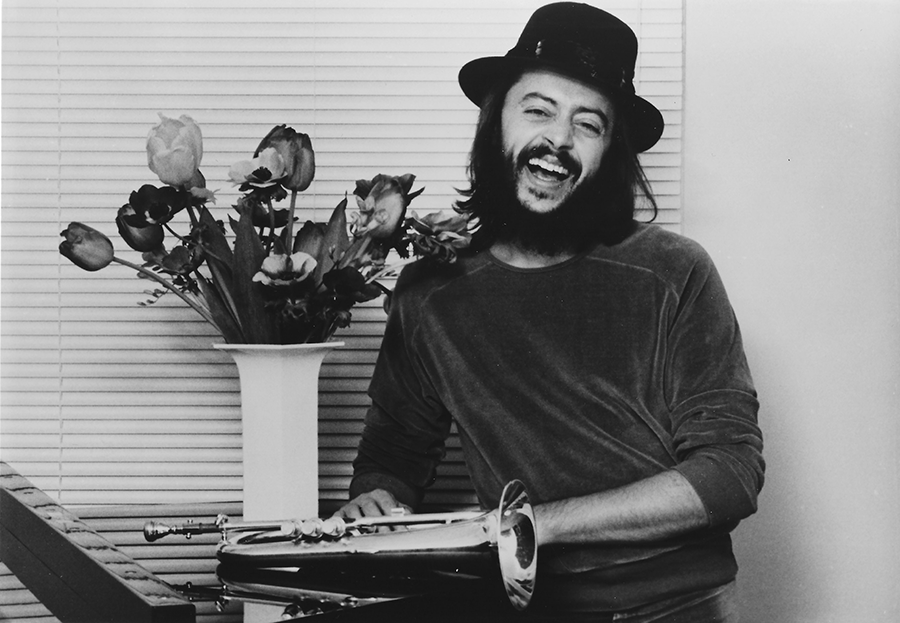His career began in the ’60s, but with his chart-topping hit “Feels So Good,” the title track of his 1977 album, Chuck Mangione finally was recognized as one of the premier instrumentalists and composers in the world of melodic jazz. Awards from the record industry piled up, and the sincere little man with the flugelhorn found himself in constant demand on the concert circuit.
“Obviously our music is now being heard and appreciated by many more people than in the early ’70s,” Mangione said prior to a concert at Red Rocks Amphitheater in 1980. “But what’s gratifying is to see the people who were there in 1970 are still there, and the new audience has been established now.”
With that increased listenership, more was expected of the prolific Rochester, New York, native. “There are demands not only from the US and Canada, but Europe, Japan, Australia and South America. It’s like trying to find enough time to touch all the bases, and yet as someone who grew up playing music and enjoying performing live for people, it’s kinda high-class trouble. I still believe it’s important for people to hear the music live, especially today when people need to be taken away from their living room TV sets once in a while.”
By 1980, however, television had only enhanced Mangione’s appeal. After ABC Sports had successfully used Mangione’s unsolicited music in background and replays during the 1976 Olympics, the network’s Roone Arledge commissioned him to write the theme for the 1980 Winter Olympics and broadcasted him performing the “Give It All You Got” theme at the Olympic Village to a global television audience of 500 million people.
Mangione’s music acted as a jazz primer for many of his newer listeners. As a composer, he turned out an admirable amount of music that was as varied as it was significant—soundtracks, orchestral pieces and more. At the time of his 1980 Red Rocks performance—the fourth of his career—his work with the Chuck Mangione Quartet was stoking his enthusiasm. As always, the musicians with whom he surrounded himself worked sans contract. “I don’t believe in holding anybody prisoner,” he allowed. “I think people should be given space to grow and contribute. Everyone is professional—the group’s track record is quite unusual, with people staying together three and four years with the amount that we travel and work. The alumni of the band over the last ten years is pretty incredible—Steve Gadd, Tony Levin, Gerry Niewood, Alphonso Johnson—and I’m very proud. I always fall in love with the people I make music with, so I don’t sit around thinking about what happens when they move on.”
In 1981, fans managed to stagger out of bed at dawn to make another trek up to Red Rocks. Mangione and some special guests performed two shows at the famous outdoor venue—a 7:30 a.m. sunrise appearance and an 8:00 p.m. sunset concert. The early performance as the sun came up was a change of pace for audience and performer alike.
“Yeah, it involves some unusual things—like getting up for a sound check while it’s still dark outside,” Mangione laughed. “But Red Rocks has always been a unique situation for me. The first time we played there, we had a full eclipse of the moon. And it had been raining for days when we came to town for the ‘Chase the Clouds Away’ tour, and we had perfect weather. Since it’s always been special playing at sunset, I just wondered what it would be like playing at sunrise.” Mangione thought the experience of making music at an early hour was a spiritual event—he believed that people listen to music at all times of day. “I don’t look at it as two different musical programs, just two different musical feelings.”
Mangione wanted the shows to be special. Featuring three trumpets, two French horns, four trombones, reed and rhythm sections, guest drummer Gadd and singer Don Potter, the shows were part of his tour to promote Tarantella, an album recorded during an eight-hour musical marathon that he had organized in Rochester to benefit victims of the November 20, 1980, earthquake in Italy.
He had read about the situation and heard that money wasn’t getting to the right people. “I got to thinking about all the people I’d made music with in the last twenty years, and a lot of their last names ended in a vowel,” he grinned. “I didn’t have any relatives involved in the earthquakes, but I’m proud of my heritage, so I got on the phone. It was a hard time to get people together—two days after Christmas—but everyone was interested.”
More than $100,000 was raised through the concert and a telethon held the night before. The event was billed as an evening of music and dance, but it ended up going until five in the morning, with contributions from friends Dizzy Gillespie, Chick Corea, Gadd and Mangione’s brother Gap. Mangione had only planned on videotaping the performance, recording audio as an afterthought, but afterwards, he pushed for Tarantella’s release, going through the hassles of getting clearance for all the guest artists and finally getting 80 minutes on record out of the eight hours onstage.


